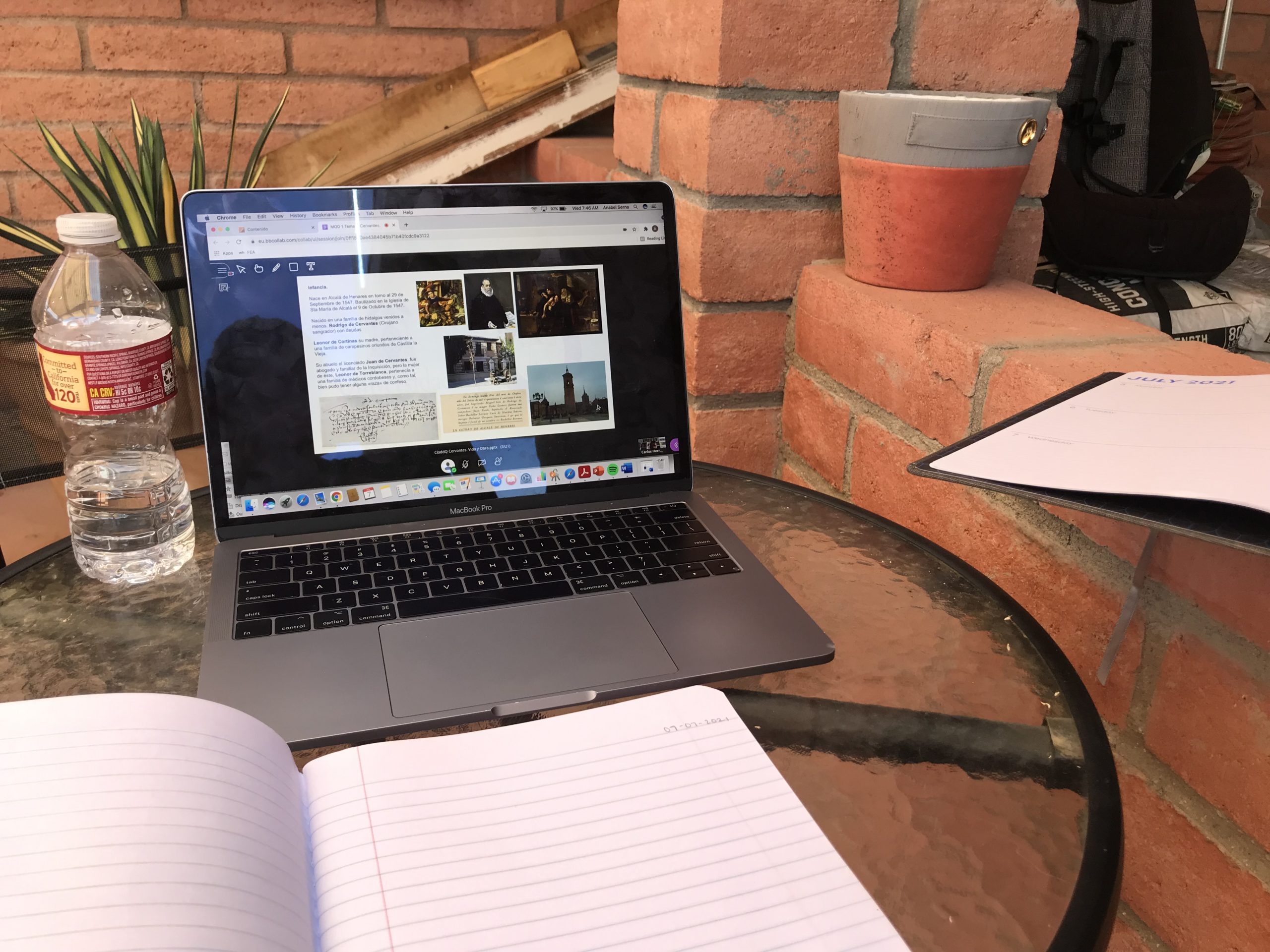
The Adventures of Anabel Serna in Spain Virtually
By:
Published:
Demographics
Regions
July 8, 2021
This week I started my virtual study abroad program with the University of Alcalá in Alcalá de Henares, Spain. I was unsure what to expect of the program, considering these virtual study abroad programs are relatively new due to COVID-19. I was hoping the experience would be more than an online class despite knowing that our options are limited due to the time differences. However, I was pleasantly surprised to find out my classes are synchronously online twice a week each. I got to meet both my professors “face to face” and classmates. The classes I am taking through the University of Alcalá are Cervantes: Las Aventuras de Don Quijote (which translates to Cervantes: The Adventures of Don Quijote) and Historia de la Pintura Española: Los Grandes Maestros (which translates to The History of Spanish Painting: The Great Masters). These classes will be the final ones before I graduate with my Bachelors of Arts in Spanish with an Emphasis in Hispanic Linguistics at the end of the summer.
My immediate thought when I saw the courses I was enrolled in was “I almost made it.” Most Spanish speakers and students have heard and dreaded the title Don Quijote from an early age. It is a book written by the very famous writer Miguel de Cervantes in the 17th century. Not only is the book dauntingly thick, but it is written with old and complex language. However, it is considered a classic around the world and many call it a literary masterpiece. Having spent eight years taking Spanish classes, I thought I had made it out without having to confront the intimidating novel but, of course, I will have to tackle this book in the last semester of my Spanish career.
On Monday morning, sitting in my first class for Don Quijote, my attitude quickly changed. We went through the usual introductions, course outline, and housekeeping materials before jumping into the introduction for the book. My professor began explaining the history behind the novel and how it has shaped books, movies, and TV shows since the day it was published and continues to today. He mentioned that, at first read, the book seems comical and fun but when you truly understand it, it becomes very sad. He described it as the saddest book he has ever read (and judging by the giant bookshelf in his background, I’m assuming he has read a lot). As class went on I could see how he got more and more passionate about the book, it’s message, and all that it has influenced in the over 400 years that it has been around. By the end of the class I found myself excited to begin the novel and my feelings of intimidation fading.
After class I realized that all the things I had heard about Don Quijote had led me to make judgements about a book I know nothing about. I never bothered to research anything about it and just prayed I would never have to encounter it. Similarly, I knew nothing about what online study abroad is actually like. I assumed negative things before giving it the chance. I think that my pessimistic thoughts and pre-judgements were definitely highlighted this week. Despite this not being the ideal study abroad experience, I still have the opportunity to make the most of it and learn from professors truly passionate about these topics. Already both my professors have shown us pictures and described pieces of Spanish culture from a first-hand perspective. I have a chance to hear about the world through locals and learn about history from those who know it best. A goal I am setting for myself for the rest of this experience is to be more open minded and positive about things but especially about what this virtual study abroad has to offer.
